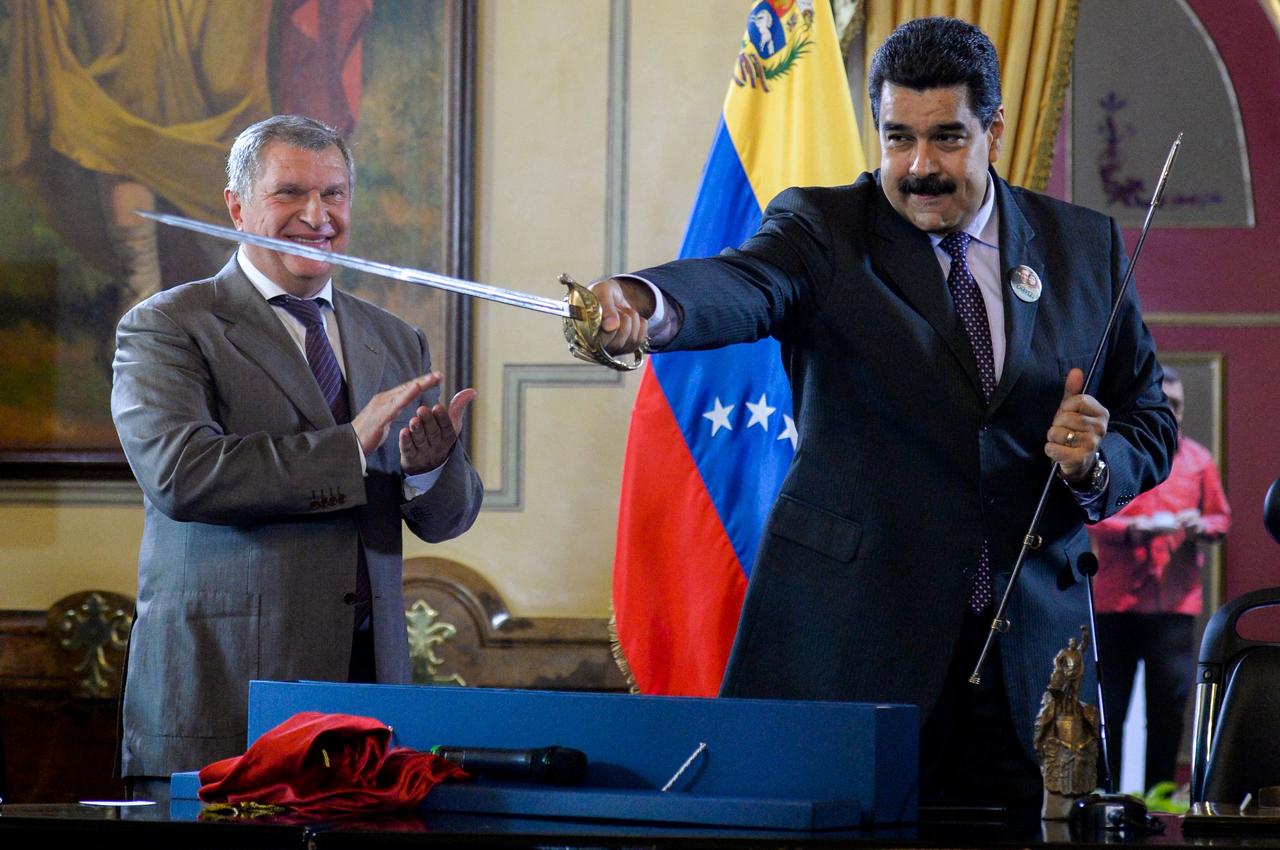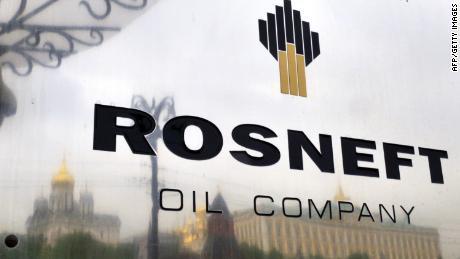Rosneft Abruptly Exits Venezuela, Sells Assets To Russian State, Amid US Squeeze On Maduro
In the past weeks the Kremlin has shown it’s willing to punch back as well as take drastic necessary defensive action in the face of Washington sanctions at a moment America is preoccupied and made more vulnerable by the coronavirus threat — first by dumping OPEC+ and MbS, effectively declaring war on US shale — and now by taking aggressive measures to insulate Russia’s state-controlled Rosneft.
On Saturday Rosneft announced it has sold off all its Venezuelan oil assets to an unnamed Russian state entity. “The government of the Russian Federation has acquired assets in Venezuela from Rosneft. A company 100% owned by the Russian Federation has become the owner,” Russia’s TASS said.
A company statement framed the move as key to protecting shareholders’ interests at a moment the Trump administration ramps up pressure on Maduro and external entities still doing business with Caracas. It’s been widely reported that Rosneft has explored exit options since early 2019 when Venezuelan assets continued rapidly losing money, leading to worsened current operating conditions.

“As a result of the concluded agreement all assets and trading operations of Rosneft in Venezuela and/or connected with Venezuela will be disposed of, terminated or liquidated,” Rosneft said. “We took this decision in the interests of our shareholders, as a publicly traded international company,” Rosneft spokesman Mikhail Leontyev further told TASS. “And we have a right to expect, indeed, that the US regulators fulfill their public promises.”
On Thursday the White House went so far as to issue a $15 million bounty on Maduro and his inner circle over drug trafficking charges, amid sweeping indictments against what Washington dubbed a vast narco-state criminal enterprise orchestrated by the regime. It appears Rosneft took note of Trump’s willingness to press his economic war on Venezuela further even as the United States now leads the world in numbers of confirmed coronavirus cases, which threatens to decimate an economy still on “pause” and extreme uncertainty still on the horizon.
All of this follows in mid-February the US slapping new sanctions on Rosneft Trading SA, a unit of Rosneft, and the company’s executive Didier Casimiro, accusing it of being the “primary culprit” of a campaign to evade Washington’s pressure campaign on the Maduro government. But the sanctions stopped just short of naming parent company Rosneft, though the Trump administration long accused it of “actively evading sanctions — engaging in ruses, engaging in deception.”

Bloomberg observed that “The fight over Venezuela fits into a much larger geopolitical battle between Trump and Vladimir Putin, with both turning to oil as the weapon of choice.” And the report further cited Russia’s ambassador to Venezuela, Sergey Melik-Magdasarov, as saying:
“Don’t worry! This is about Rosneft’s assets being transferred to Russia’s government directly. We keep moving forward together!,” he [Amb. Melik-Magdasarov] said, in a message that also posted on the embassy website.
The assets include Rosneft’s stakes in local upstream companies Petromonagas, Petroperija, Boqueron, Petromiranda and Petrovictoria, as well as oil-service, commercial and trading units.
The Russian Federation controls Rosneft with just over 50% of its shares, while BP Plc is the second-largest shareholder with 19.75%, and Qatar’s QH Oil Investments owns 18.93%.
Rosneft’s position has long been that US sanctions are illegal and that its own operations in Venezuela are commercial in nature, not political, after in prior months the company’s cooperation with state-run PDVSA became an “open secret”.
The ultimate strategy behind Saturday’s dramatic announcement is as yet uncertain, it should be noted:
But Russ Dallen, head of Caracas Capital Markets brokerage, cautioned that it’s too early to know for sure whether the move is intended to bolster Maduro.
“We don’t know whether the new state entity is a cemetery corporation, where companies go to die, or whether the Russians are simply doing it to take Rosneft — which is their crown jewel and provides a large portion of Russia’s income — out of the way of sanctions and Putin will use the new company to continue to help Maduro,” he said.
Rosneft has emerged as one of PDVSA’s closest joint venture partners, being crucial as a heavy lifter keeping Venezuelan oil afloat at a moment Washington tries to strangle and blockade the socialist state’s industry.
Tyler Durden
Sat, 03/28/2020 – 20:50